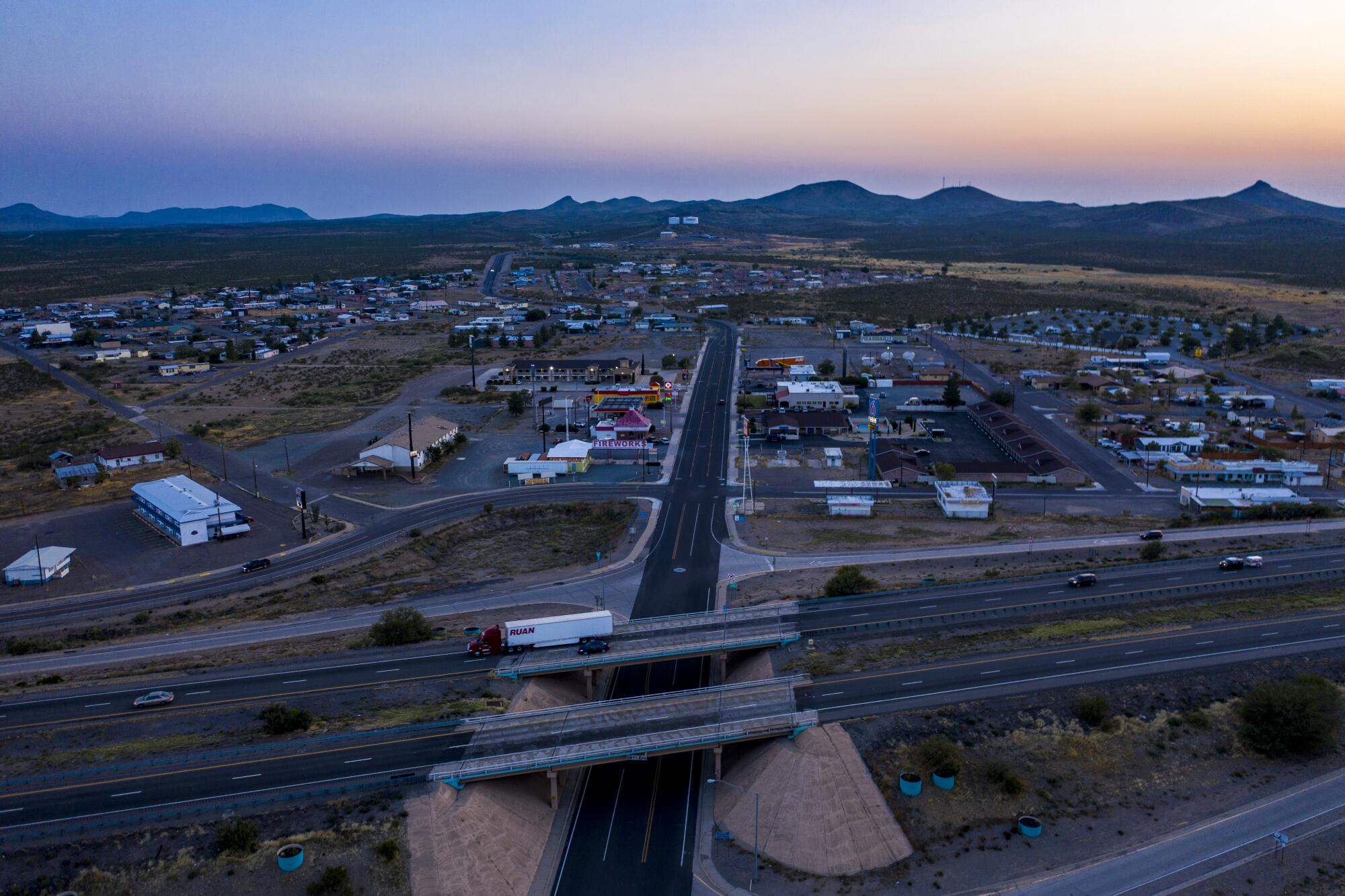
- Share via
LORDSBURG, N.M. — The whispers around town started this spring during the early days of the shutdown. Something felt off, even here in this windswept crossroads far from most troubles. Dean Link had a hunch about what was to come, but when the mail arrived in August, despair overwhelmed him.
“You will be laid off effective September 7, 2020,” stated the letter from the mayor of Lordsburg informing Link that his part-time job at the local history museum was over.
In that moment, Link joined the growing ranks of some 20 million other Americans — many employed by corporations, industries and mom-and-pop shops, but also, like him, in the public sector — who have lost their livelihoods during the punishing economy wrought by the COVID-19 pandemic.
The museum’s only paid employee, Link, a gregarious man with a drawl that immediately gives away his Southern roots, appreciated the paycheck from the $9-an-hour gig. But it was serving as the gatekeeper to the deep and at times uneasy history of this town — home to both a Japanese incarceration camp and a landmark aviation mission — that gave him true purpose.
“In life, I try not to harp on the bad things,” the 61-year-old said on a recent afternoon, while standing outside the A-framed museum, which now has a chain-link fence blocking the driveway.
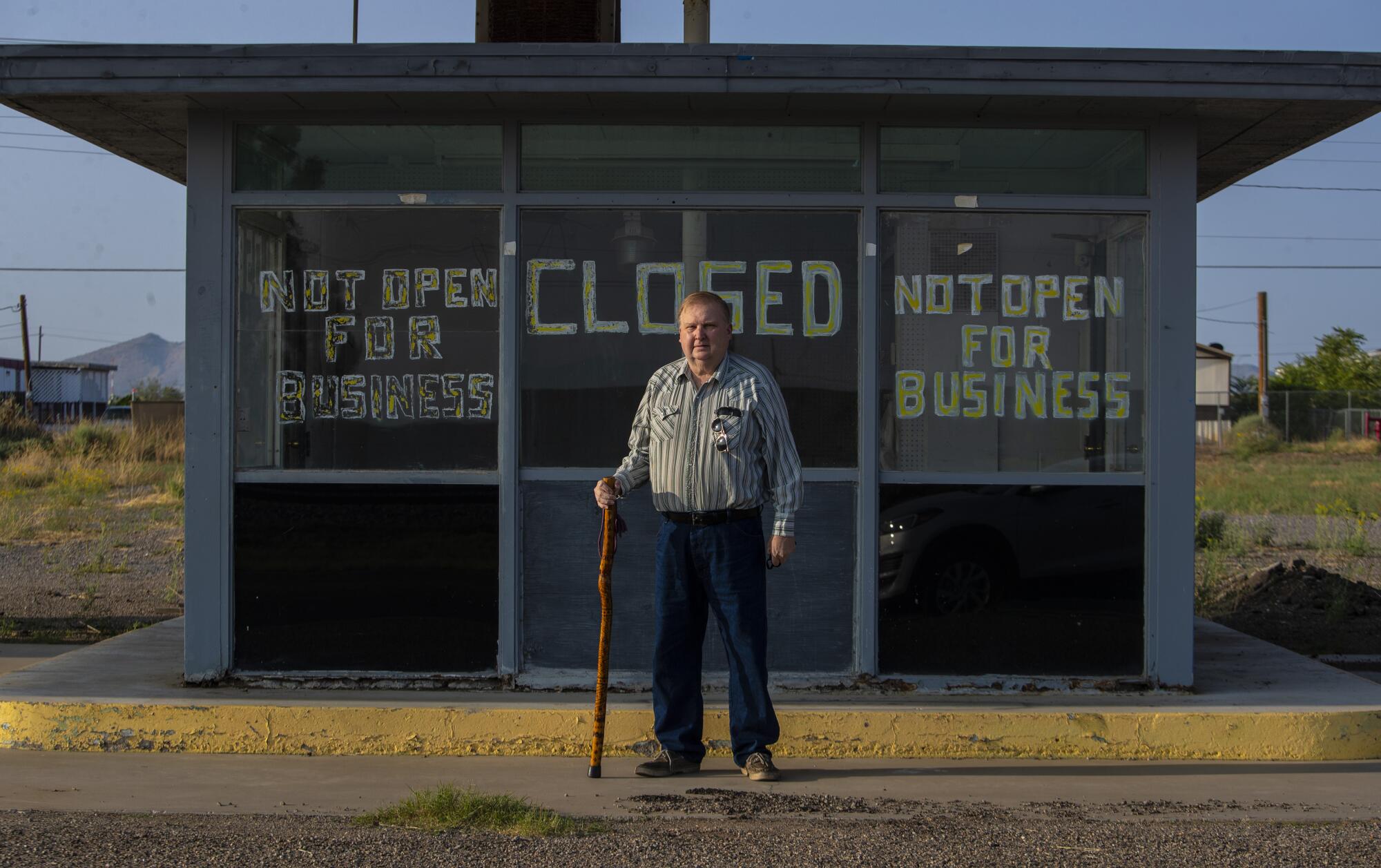
“But first thing to go is the history museum?” he said. “It’s actually surprising.”
Down the road a ways, Marie Garcia spends her days inside the near empty Ramona’s Cafe. She opened the restaurant in 2006 and named it for her late mother, whose green chile, menudo and gordita recipes inspired the current menu. Since the state has only allowed restaurants to open at 25% capacity and Ramona’s only has seven tables and a small staff, she’s barely getting by.
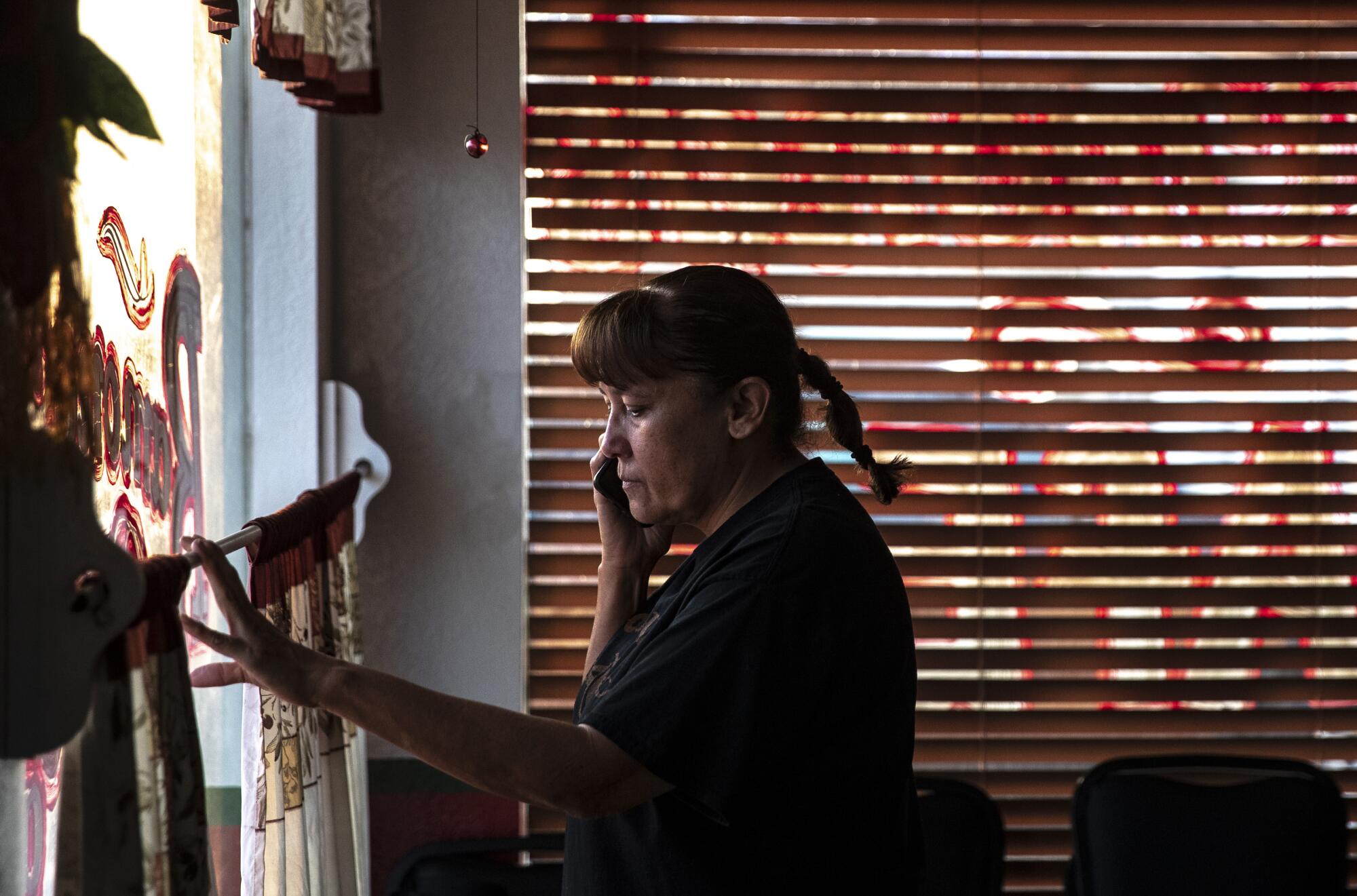
She worries a lot at night, wondering how she can keep from laying off her employees.
“Everyone needs work and we are fighting to keep everyone on board,” she said.
As the U.S. death toll from the pandemic passed 200,000 this week and Congress remains stalled over a possible new relief package, many states, and the municipalities they help fund, continued to hemorrhage cash amid ongoing shutdowns. Strapped for money, many states, including New Mexico, have had to slash funding that would normally trickle down to its counties and cities, including Lordsburg, located just off Interstate 10 in the southwestern corner of the state.
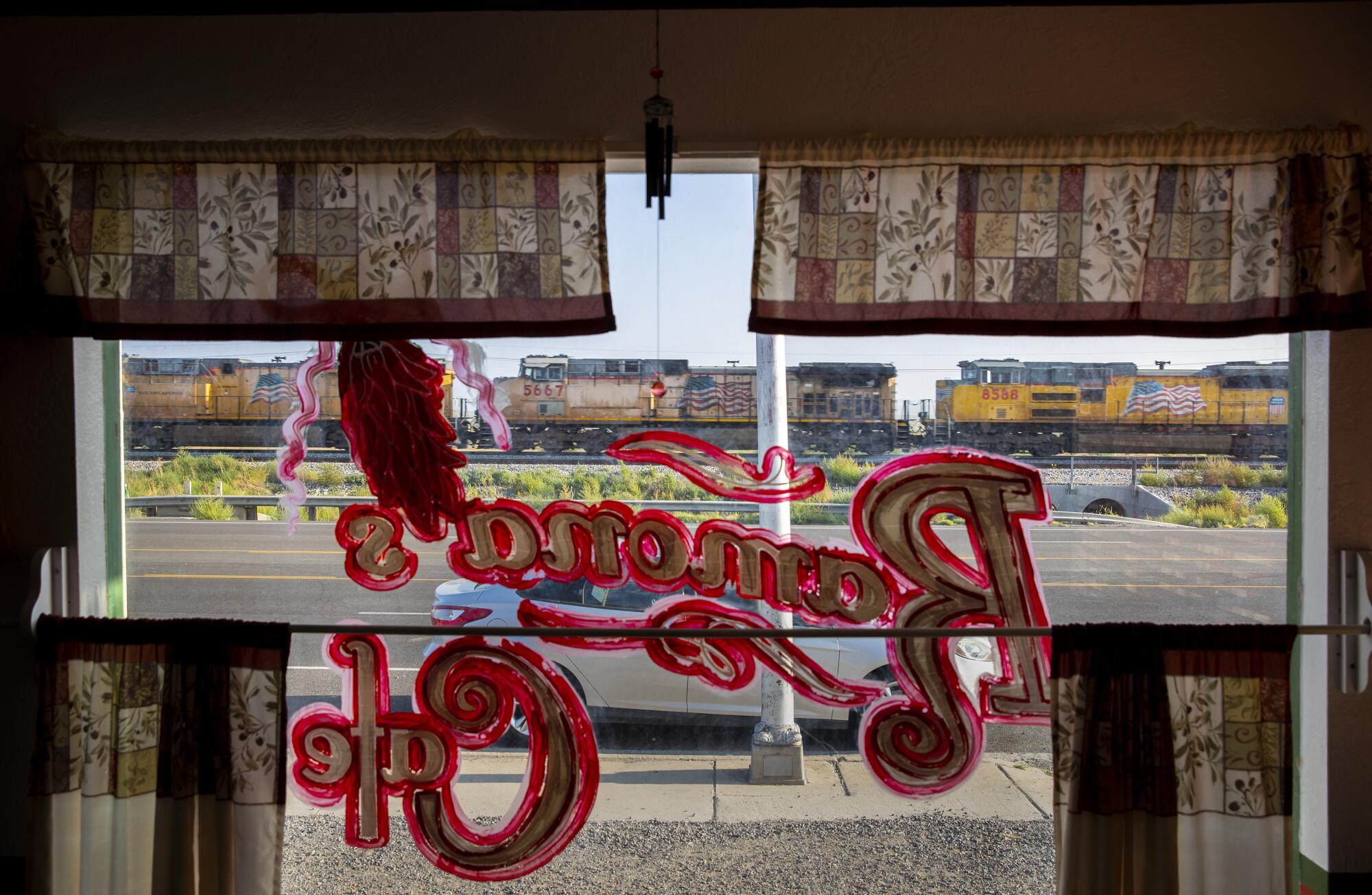
In New Mexico — where economists have projected a nearly $1-billion budget deficit — Democratic Gov. Michelle Lujan Grisham’s administration has urged state agencies to cut spending by 5% through next year. Even those across-the-board cuts will not be enough “to weather the storm,” Lujan Grisham told a congressional panel this month.
“An umbrella is not enough protection in a hurricane,” she said.
In neighboring Colorado, lawmakers facing a $3-billion hole in the budget cut a handful of mental health programs — a move that critics say will amount to only minimal savings, but could significantly impact people who rely on the programs.
Similar budget deficits in Arizona and Texas have led to concerns about important education and healthcare programs losing funding for years to come. It is the same across the nation; from borough to hamlet to city, the virus’ toll has exacted the kind of pain that has torn through families, upended budgets, forced evictions and left people like Link to contemplate unexpected misfortune.
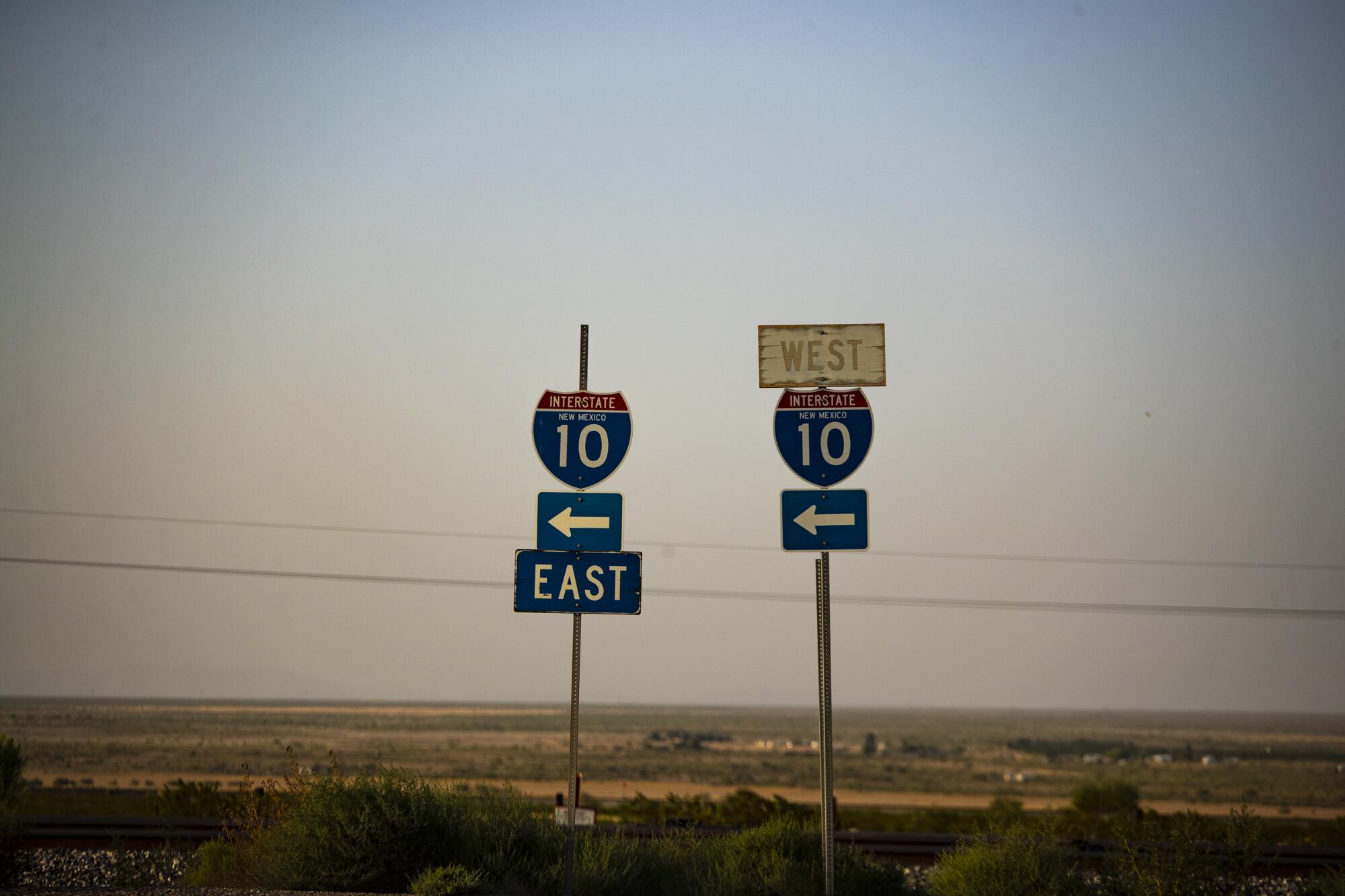
Go anywhere in Lordsburg, a town of 2,400, and you can hear the roar of semi-trucks shuttling along Interstate 10 between Tucson and El Paso. The only other constant noise is the sound of wind gusting so fast that it whirls into dust devils, bending the towering yuccas that dot the high-desert terrain.
It’s mostly a passing-through place, where the expanse is so vast that neither storm nor soul could sneak in unnoticed. If visitors are in town, it is usually only for as long as it takes to fill up their gas tank, grab something from McDonald’s or catch a few hours of sleep before barreling on. And these days, even those passersby have dwindled.
The city relies heavily on income from gas and lodgers’ taxes, both of which have plummeted during the pandemic. The lodgers’ tax revenue brought in between March and July of this year declined 33% from what the city had received during the same time period last year, and money from gas taxes brought in between March and June of this year declined 32% compared to the same period last year.
In the early days of the pandemic, the town had to dip into its general fund, which hovers around $1 million, to pay for personal protective equipment for its 36 employees and to cover sick time for a few employees, who contracted the virus. Then, a bit of a respite arrived.
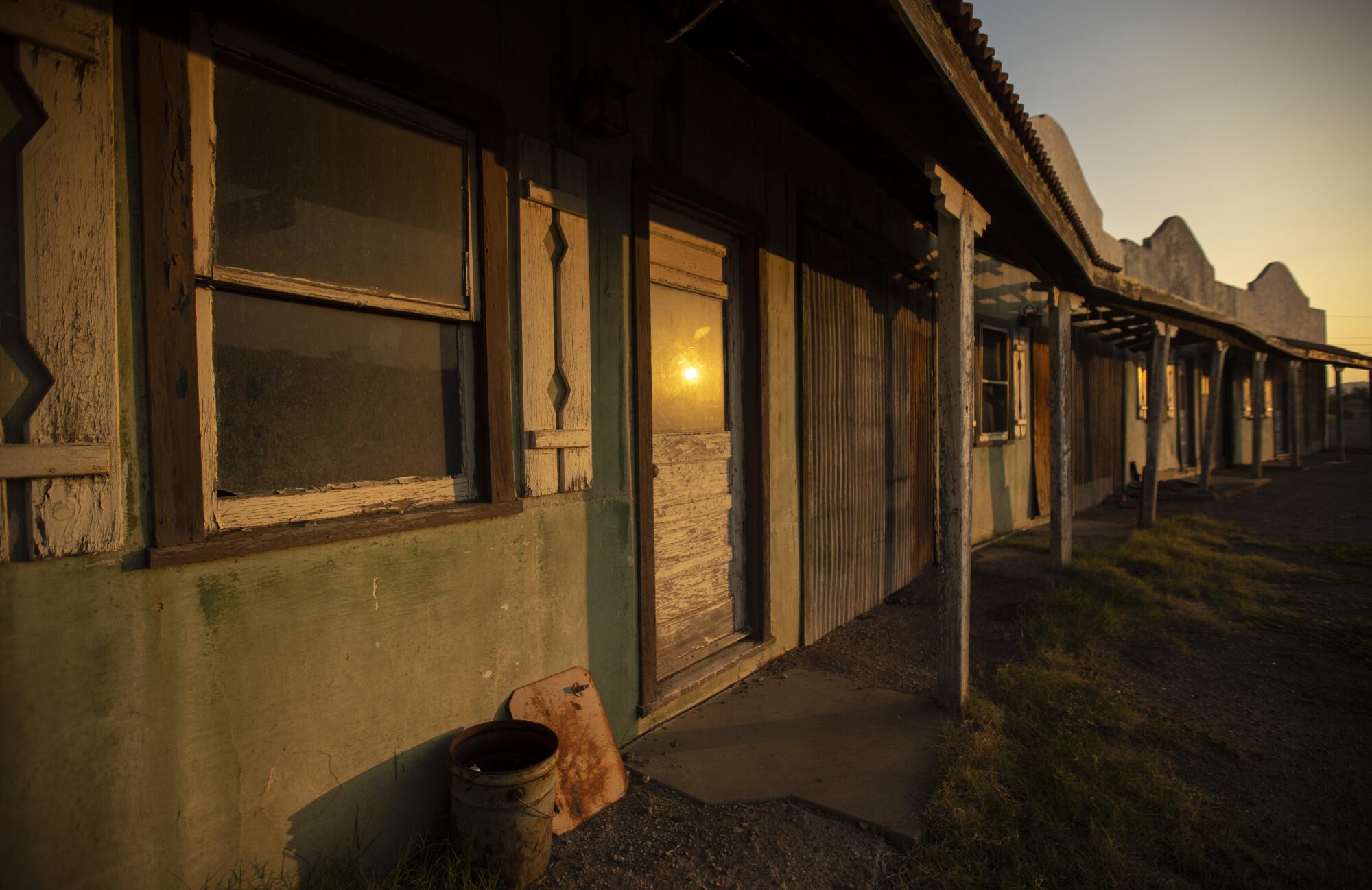
On Sept. 1, local officials received about $16,900 from the state through the federal CARES Act to help cover the extra costs they’d incurred. Still, officials realized the small city needed to tighten its budget.
City employees were barred from overtime and a plan to hire another police officer — a move that would bring the force up to 10 — was put on hold. The special events center, where locals used to gather to bowl or play pickup basketball, has been shuttered for months, saving on utility bills.
Earlier this month, the city’s volunteer firefighters quit over a pay dispute, leaving the municipality to temporarily rely on fire services from Hidalgo County.
In recent years, unemployment in the county has hovered around 4%. New figures reflecting losses during the pandemic now have it hovering around 8%, the long line of cars wrapping around the old elementary school on a recent day an indication of the scope of suffering. The school had been turned into a makeshift food bank where families picked up boxes filled with milk, cheese and bread.
Officials expect there will be tougher months ahead.
“We depend and really flourish because of interstate traffic,” said Caesar Alvarez, 28, one of the city’s six council members.
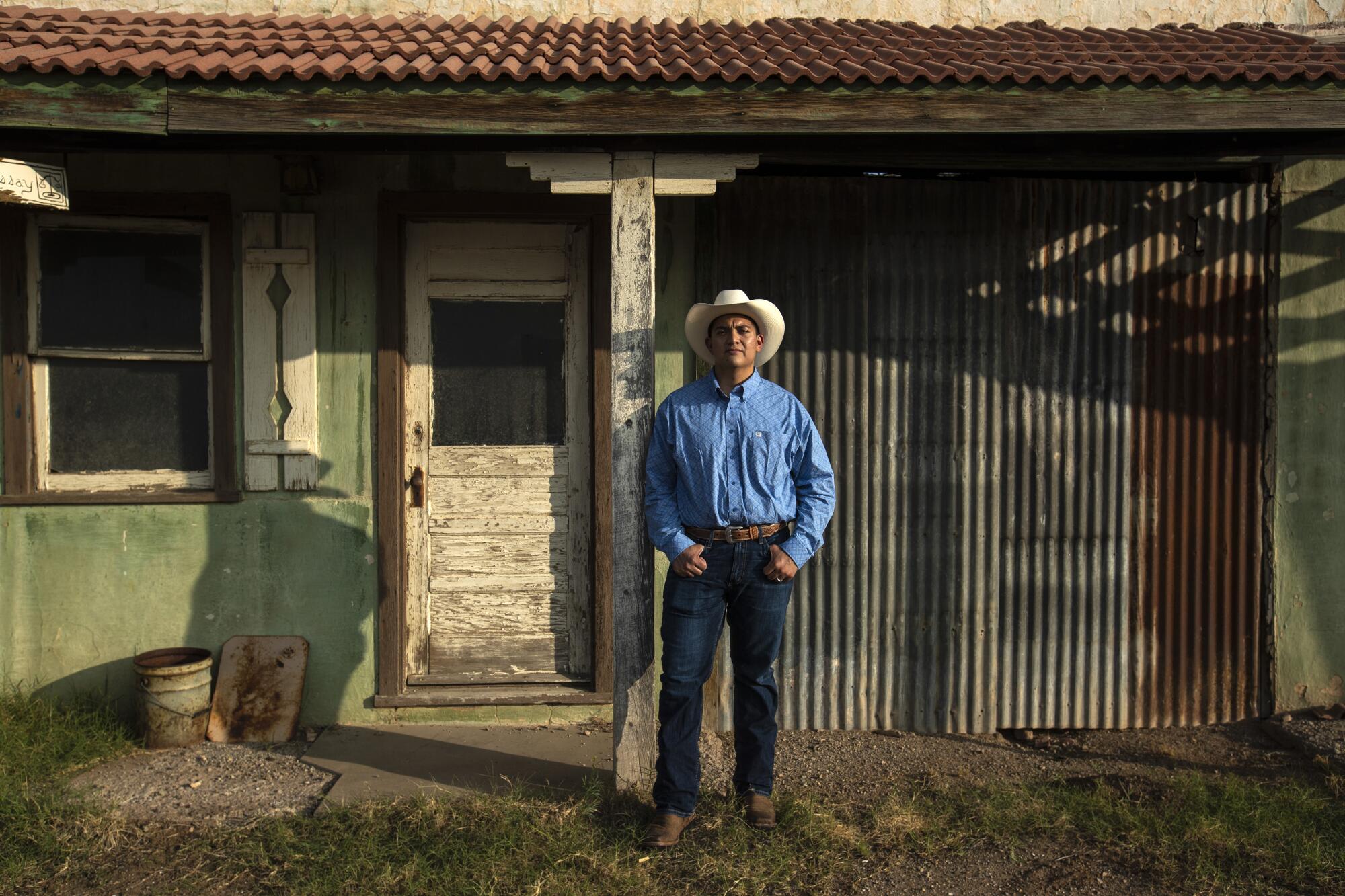
Fewer cars and trucks are stopping these days. The onetime sheriff’s deputy turned middle school teacher, said his home always been slow-paced — a town for people who enjoy their space and are never in too much of a rush. But he’s never seen it this quiet. It concerns him.
“No one is traveling, no one is exploring. That hurts us,” he said.
For Link, landing the part-time job at the Lordsburg-Hidalgo County Museum in 2018 was a high point of his time here in town. After relocating here from Nashville in 2014 to be closer to his sister, he ran a motel for two years until it closed. Then he worked the cash register at Circle K, but heart issues and an inability to stand on his feet for extended amounts of time forced him to quit. He got disability payments — $1,300 a month — that helped cover his $600 rent.
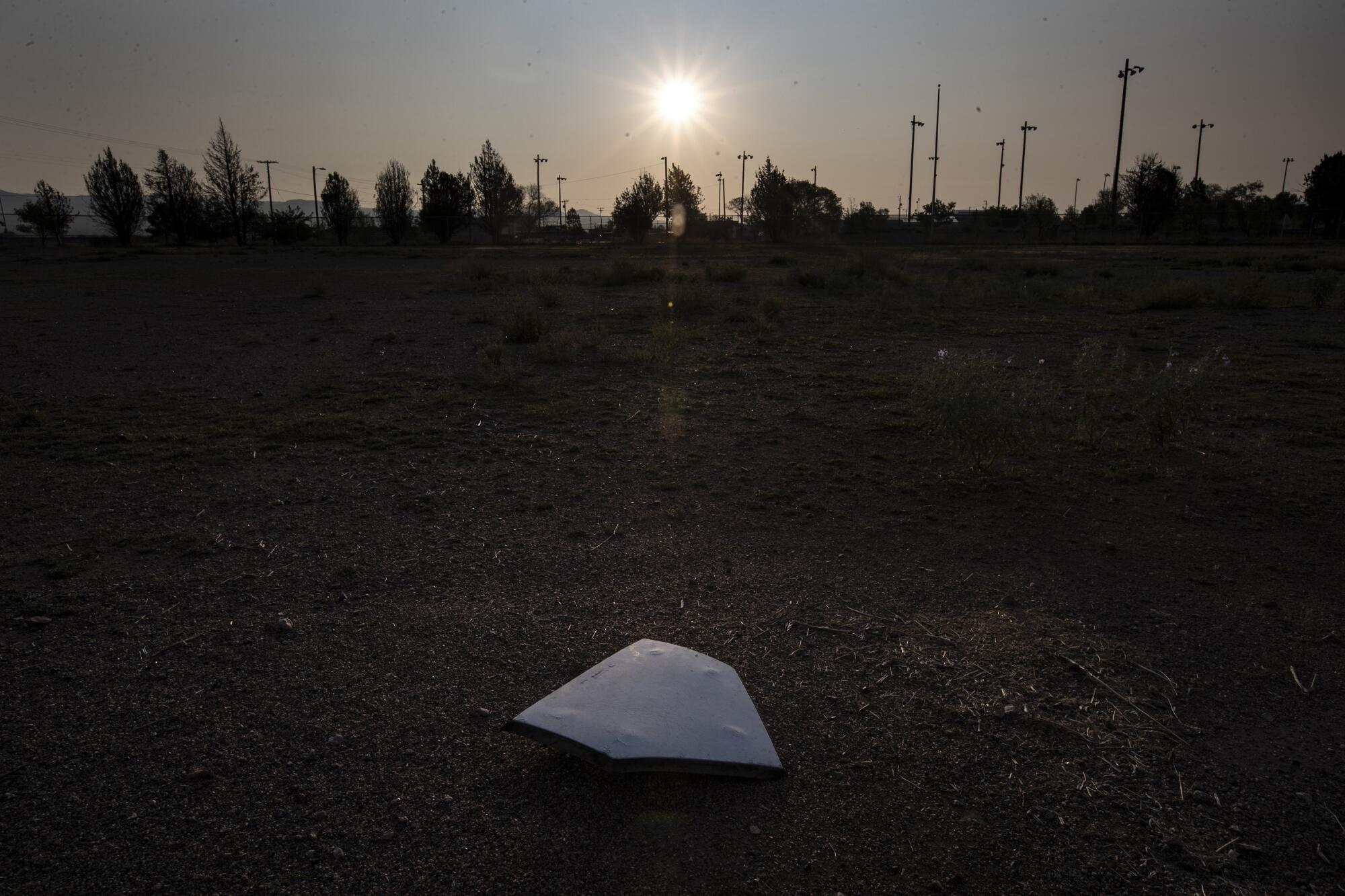
“The museum allowed me to be an ambassador of sorts to people passing through town,” he said.
Lordsburg is one of many dusty towns across the Southwestern U.S. whose histories are unknown to most who drive past. It is home to the first airport in New Mexico, a dirt strip southeast of town, where Charles Lindbergh landed in 1927 on his transcontinental air tour.
For a year during World War II, it was the site of a Japanese incarceration camp. In the years that followed, the U.S. government housed prisoners of war from Italy and Germany here in Lordsburg.
In more recent years, Link said, Japanese American tourists were among the most frequent visitors to the museum.
“These were people searching for answers,” he said. “Trying to better understand. … There were many tears.”
Outside the single-level museum, which was converted from a National Guard office in the early 1990s, sits a small tank and a rusted, 20-foot-tall windmill donated by a rancher who lived 25 miles from town.
Inside, Link used to show guests around an exhibit with photos of Lindbergh and another with artifacts from the incarceration camp, including a floodlight, firewood and yellowing photos.
The town also harks back to the Jim Crow era, a place where some motels in Lordsburg were listed in a Green Book, a guide that directed Black motorists to establishments that would serve them.
Once an important overnight stopping point for cross-country road trippers, there’s a street here called Motel Drive — many of the buildings now sit vacant, relics to past generations that had their own problems and have since become footnotes or bigger memories in the American story.
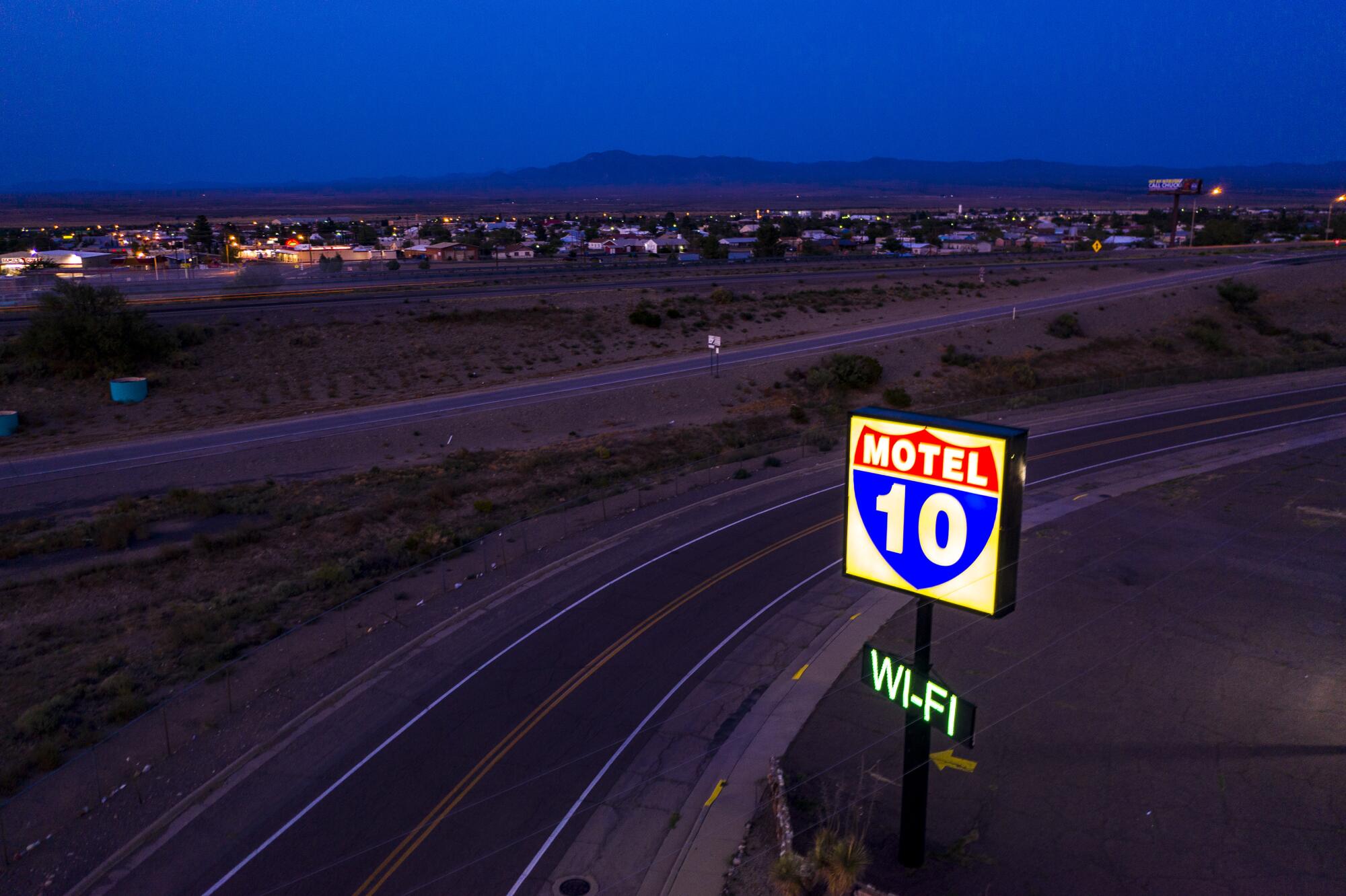
There was Hotel Hidalgo. The Bel Shore. The Ownby. And a boarded-up motel, with a billboard advertising rooms for $29.95.
“People would see photos and just be amazed by what it was,” Link said, reminiscing on a recent afternoon, as the windmill turbine creaked loudly.
“This was a hub,” he said.
No more. Link’s last day was two weeks ago and, although he tries to stretch his disability aid as far as he can, he said he has dropped by the food bank a few times.
“Who knows what the future holds,” he said. “But I’m grateful it’s there.”
He fills his time reading and thinking about the museum. He sometimes rereads a letter he got from the city, saying they’ll revisit the topic of whether to keep the museum closed in October. He’s trying to stay hopeful, but he doesn’t expect it to reopen — at least not right away.
“So much history lost in these historic times,” he said.
A half mile or so down the road, the sound of a freight train heading west toward Tucson rumbled over the desert and echoed through Ramona’s Cafe. Garcia said she misses her regulars — locals who came in for huevos rancheros and spent all morning sipping coffee and chatting. Now, whenever they have some extra money, they call in, pick up their food and leave.
Garcia has seen a $600-a-day decline in profits — a trend that, if it continues, could mean she’d have to close. She received a Paycheck Protection Program loan for $19,000, which covered payroll for her 10 staffers and utility bills for a while. But it’s running out.
Despite the struggles, she feels buoyed by her community.
“It’s them who are keeping me above water,” she said.
A woman approached the front of the restaurant to get takeout.
“I like these tables, Marie, that’s smart,” she said.
Garcia laughed and ran her hands across the front of her black apron.
“All three have been filled some days,” she said. “Today, nothing. It’s all to-go.”
The train kept on and the cars on the interstate raced past as the day slipped toward dusk.
More to Read
Sign up for Essential California
The most important California stories and recommendations in your inbox every morning.
You may occasionally receive promotional content from the Los Angeles Times.










